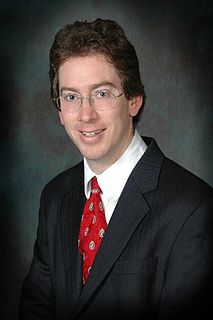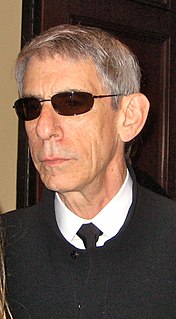A Quote by Gary Bauer
It's important to ask candidates about their beliefs, in part because politicians frequently exploit religious faith - often with the idea that voters will be more likely to unthinkingly accept certain political positions so long as they arise from religious belief.
Related Quotes
Until the content of a belief is made clear, the appeal to accept the belief on faith is beside the point, for one would not know what one has accepted. The request for the meaning of a religious belief is logically prior to the question of accepting that belief on faith or to the question of whether that belief constitutes knowledge.
All my life I have made it a rule never to permit a religious man or woman take for granted that his or her religious beliefs deserved more consideration than non-religious beliefs or anti-religious ones. I never agree with that foolish statement that I ought to respect the views of others when I believe them to be wrong.
My belief is that the various religious traditions have great potential to increase compassion, the sense of caring for one another, and the spirit of reconciliation. However, I believe that a human being, without religious faith, can be a very good person - sincere, a good heart, having a sense of concern for others - without belief in a particular religious faith.
Religious freedom is often referred to as America's first freedom. Our country was founded by religious exiles and built on the belief that God has given all people certain inalienable rights. Government's role in society is to protect these rights and ensure that we are safe from religious persecution and discrimination.
There is not a truth to be gathered from history more certain, or more momentous, than this: that civil liberty cannot long be separated from religious liberty without danger, and ultimately without destruction to both. Wherever religious liberty exists, it will, first or last, bring in and establish political liberty.
Religion is important for humanity, but it should evolve with humanity. The first priority is to establish and develop the principle of pluralism in all religious traditions. If we, the religious leaders, cultivate a sincere pluralistic attitude, then everything will be more simple. It is good that most religious leaders are at least beginning to recognize other traditions, even though they may not approve of them. The next step is to accept that the idea of propagating religion is outdated. It no longer suits the times.
The Chief Justice's ... main point seemed to be that the references to God in the Pledge of Allegiance aren't really religious and therefore are not that important - something I would think would offend Christians who think it should stay because it is religious and does matter. Too many Christians appear to be desperate to shore up their failing confidence in their own religious beliefs by having the government officially endorse those beliefs.
An interesting thing about the religious people who run Iran is that one of their problems with Ahmadinejad, who they thought would be one of their guys because he's so religious, is that he actually has some really nutty ideas about religion. He's too religious. He's too literal. I mean, there are plenty of people in Iran who like Ahmadinejad's religious beliefs, just as there are plenty of Christian fundamentalists in America who like George W. Bush's beliefs. But there are also plenty of people who are very uncomfortable with his overt religiosity.
When members of a certain party concoct various devious schemes to suppress votes, purposely misinform potential voters, spread vile untrue filth about certain candidates, play the race, gender and religious cards, and literally tamper with vote tallies, then we are not a truly representative government!


































